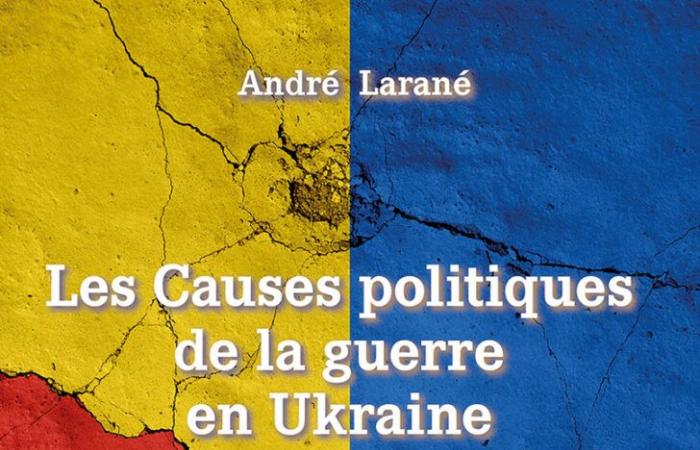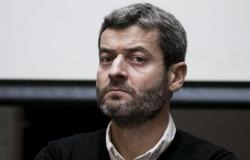January 15, 2025. Boasting as usual, President Donald Trump has made it a point to put an end to the Russian-Ukrainian conflict in the hours following his inauguration on January 20. But according to historian and anthropologist Emmanuel Todd, President Putin will not accept a ceasefire before having seized the great port of Odessa and bringing Ukraine to its knees… Let’s return to the origins and the course of the conflict to better understand its probable outcome.
The war in Ukraine is about to enter its fourth year. The beginnings of the conflict date back to the beginning of the 21st century, when the Americans undertook to detach Ukraine from Russia. The shift occurred in 2014 with the revolution Euromaïdan and the overthrow of the pro-Russian president.
The first decision of the new Ukrainian Parliament, of a symbolic nature, was to withdraw the status of Russian as a second official language. There followed a rebellion in the working-class, Russian-speaking East as well as in Crimea.
Russia took this opportunity to intervene in Crimea where Russian soldiers were welcomed in “liberators” on March 17, 2014. Thereupon, Russian troops came to the aid of the Donbass separatists assailed by the army of President Petro Poroshenko.
This first conflict ended with the Minsk agreement on February 11, 2015 concluded between the Russian and Ukrainian presidents as well as Chancellor Angela Merkel and President François Hollande. He counted on genuine autonomy for Donbass and a referendum on self-determination for Crimea, as well as a withdrawal of Russian troops and disarmament of the separatists.
But as Angela Merkel confirmed, for the West and NATO it was only a matter of “to give Ukraine time to become stronger. It was clear to all of us that the conflict was frozen, that the problem had not been resolved, but this bought Ukraine valuable time. »
This is how on February 24, 2022, the Russian president invaded Ukraine in the fear that it would one day manage to regain the initiative. He believed that one hundred thousand men would be enough to take kyiv and drive out President Zelensky. His American counterpart Joe Biden also believed it and suggested to the Ukrainian president to exfiltrate him before it was too late.
But he responded with panache: “I need ammo, not a taxi”. Westerners therefore had no other choice than to support the Ukrainians in their ardent fight against the invader.
Towards a war of attrition
We borrowed the following summary of the three years of war in Ukraine from Rémy Ourdan (Looking back at 2024: Ukraine put to the test of reality, “World Report, 2025 edition”January-March 2025).
The first year of war was, for Ukraine, a year of national unity and fierce resistance. And, on the battlefield, a year of surprises. The Moscow army experienced the failure of its three main offensives, towards the cities of kyiv, Kharkiv and Odessa. It was forced to withdraw its troops from the outskirts of the Ukrainian capital after five weeks of fighting.
The Russian army then relaunched its offensive against the eastern region of Donbass, begun at the same time as the annexation of Crimea in 2014. In a few months it conquered the cities of Mariupol, Sievierodonetsk and Lyssytchansk, before marking time. . For its part, the kyiv army managed to carry out victorious counter-offensives in a few months and liberate Kherson, the only regional capital that the Russian army had conquered.
The second year of war was one of test of time. The failure of a Ukrainian summer counter-offensive, launched under pressure from Washington, convinced kyiv and its allies that the war would be long. The Russian army, for its part, continued its advance in the Donbass, crowned with some advances, such as in Bakhmut.
The third year, it continued this slow offensive by conquering Avdiïvka (February 16) and advancing towards Pokrovsk. The only real military surprise of the year was caused by a daring Ukrainian operation against Russia (August 6), which allowed the kyiv army to seize territory in the region of Kursk. Russia had not experienced a military invasion of its territory since 1945, and the blitzkrieg created a shock in Moscow.
In 2024, Ukrainians saw hopes of victory fade away and had to face reality. General Zalujny had diagnosed, before being relieved of his duties, the existence of a « impasse » military, due to a certain balance of forces: the year only confirmed his analysis. On either side of the front line, no one has enough men to envisage decisive conquests.
The third year of war in Ukraine ended, on the battlefield, as it began, further plunging the country into the idea that the conflict had, from a military point of view, settled into a prospect of a long war. Neither Moscow nor kyiv have in fact managed, despite violent fighting and considerable human sacrifices, to change the situation.
The objective of a country which would regain its sovereignty and territorial integrity within its 1991 borders, and which would live in peace with its Russian neighbor, is receding. And while nearly 20% of the country remains under Russian occupation, the soldiers on each side experience daily carnage on approximately a thousand kilometers of front line…
“The mobilization did not have the expected effect, the return to the 1991 borders is compromised and the election of Donald Trump makes the long-term commitment of the United States uncertain,” concludes the journalist from Monde.
The war to what extent?
Reason would dictate that we return to the Minsk agreements, with broad autonomy for the Russian-speaking Donbass and the attachment of Crimea to Russia. In this case, Ukraine would have been neutralized under international guarantee, in other words “Finnishized” like Finland after the Second World War. These are the conclusions reached by the Russian and Ukrainian plenipotentiaries in Istanbul (March-April 2022) before American leaders ended their negotiations.
But for Emmanuel Todd, this exit from war can now be ruled out! In a video interview with Le Figaro (January 6, 2025), the historian jokes about American leaders, described as gender-fluidin other words elusive and fluctuating. Each president can thus take the opposite view of his predecessor, including in international commitments, as we have seen with Iran, Israel and of course Ukraine.
Scalded by three decades of confusion, from the abandonment of Gorbachev by the Anglo-Saxons to the Minsk agreements via the unilateral independence of Kosovo, Russian leaders are no longer willing to rely on international commitment.
“One of the principles of Russian policy is that the Americans cannot be trusted,” assure Todd. “The Russians know that if the Americans (or the Ukrainians) sign anything, a ceasefire or something else, it will never guarantee their security and will only be a pretext like in 2015 with the Minsk agreements to rearm Ukraine and resume the war. » This is why they will continue the war until victory, come what may.
What does that mean? “As the British services used Odessa to send naval drones to Sevastopol, the capture of Odessa oblast is a necessity for the Russians. They will have to go as far as the Dnieper. There will be no negotiation,” assures the historian. “Trump’s job will be to manage the defeat of the United States against Russia. We don’t see it yet but that’s what we’re going to experience over the year. »
Ardent pacifists ready to fight “until the last Ukrainian”here are the Europeans condemned to witness as helpless spectators to a conflict beyond their sphere of competence. Neither Germany nor France, on the verge of collapse, is able to support Ukraine, except with martial words. In Central and Eastern Europe, moreover, political movements are rising that are resolutely hostile to a confrontation with Russia, whether in Hungary, Slovakia, Bulgaria and Romania, to say nothing of Moldova and Georgia.
Let us be careful not to predict the outcome of the conflict. We only know that it will force European leaders to think Realpolitik like the others and abandon their lyrical illusions, unless they want to get lost.
André Larané






